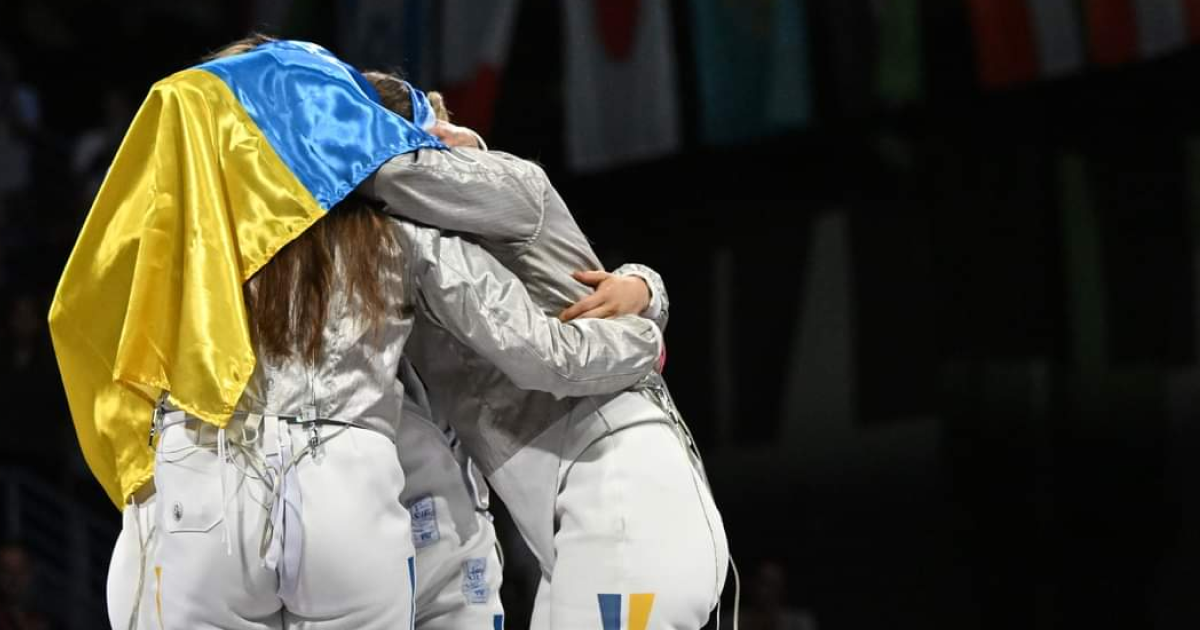"We will not shake hands with Russians or show our respect for them as athletes," an interview with Olympic Champion Yuliia Bakastova
Marharyta Yukhymenko
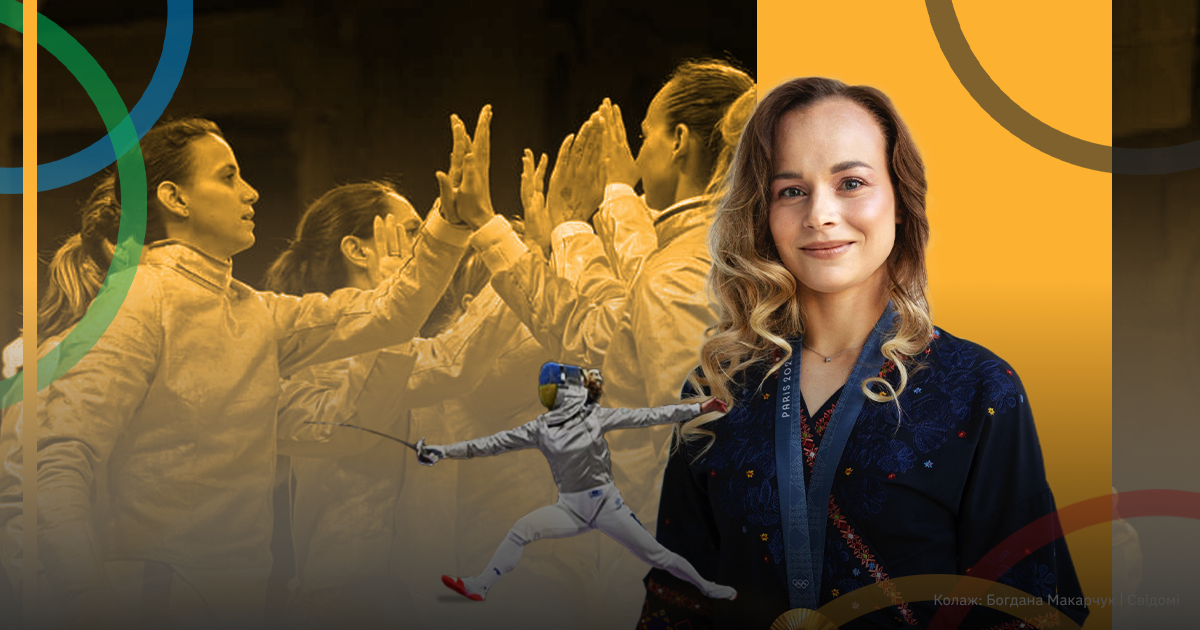
The 2024 Olympics is now over, and our athletes have won 12 medals, including three gold medals. These results were achieved despite training under war conditions.
The 28-year-old athlete Yuliia Bakastova won gold in the team fencing competition at the Paris Games. Our fencers defeated rivals from Italy in the quarterfinals and the Japanese team in the semifinals. It was Yuliia's performance that helped our team reach the final and snatch the victory from the South Korean athletes.
Read about Russians and Belarusians in ‘neutral’ status, the struggle for victory, and the international community's support for Ukraine in our conversation with Ukrainian sabre fencer Yuliia Bakastova.
Svidomi will tell the stories of our Olympic athletes in a series of interviews.
— Tell us, how did your career start? How did you get interested in fencing?
I have always loved to watch the Olympics. My grandmother told me about fencing. She used to say: "Yulia, if you want to take up something, I know some fencers, I can take you to a coach". At first, I didn't pay much attention. But then our fencers won the Olympic finals in Beijing in 2008. A few months later, I said: "Grandma, do you remember fencing?” I called the number my grandmother gave me and signed up for my first training session.
Two years later, I entered a sports boarding school. My parents hoped that one day I would become a professional athlete. At school, I joined the cadet sports team and showed good results.
At first, sports was just a hobby for me. And then, as I became good at it, I started to want more — to fence better, to perform better. That's how I made it to the Olympics.
— The Paris Olympics is your first Games. Which of your expectations have been met and which have not?
Yes, these are my first Olympics and I really wanted to be here. But the girls (of the team — ed.) and I realized that coming here was just the first step towards our dream. We always wanted to win an Olympic medal and we worked hard for it.
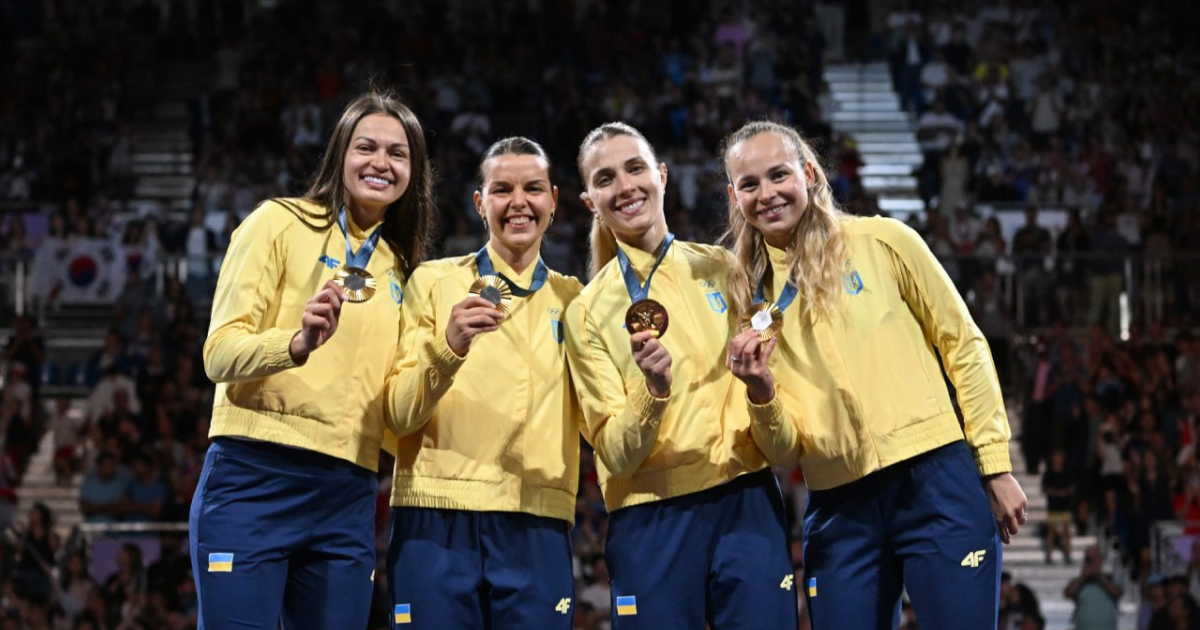
It was difficult, there were many "failures". But our coaches were very encouraging. And we believed that we could get to the Olympics and win the coveted medals.
At the Olympics, we just did our job. We were determined to show off our most professional fencing, which we had been preparing for all these years.
— How did the full-scale invasion affect your preparations for the games?
Before the full-scale war, we had a new head coach. He was an Italian, Andrea Terenzio. But we also have a second coach, a Ukrainian, Yevhen Statsenko. The Italian coach could not come to Ukraine, so our team went to him. That's how I lived in Italy for two and a half years.
At the beginning of the war, we were supported by an Italian club, many Italians, athletes, and the Italian National Committee. For the first six months, we lived rent-free in a house provided by the Italian club where we trained. Sometimes, they even gave us money for food. Then, the Ministry of Youth and Sports rented another apartment for our team.
— Do the training methods of Ukrainian and Italian coaches differ in any way?
The Ukrainian and Italian schools are both very strong. But after our team didn't make it to Tokyo, we were a little discouraged. We needed something new and different. So the Italian coach brought a new vision. Indeed, we won more games and felt more confident in our actions. For many of our opponents, these changes were unexpected.
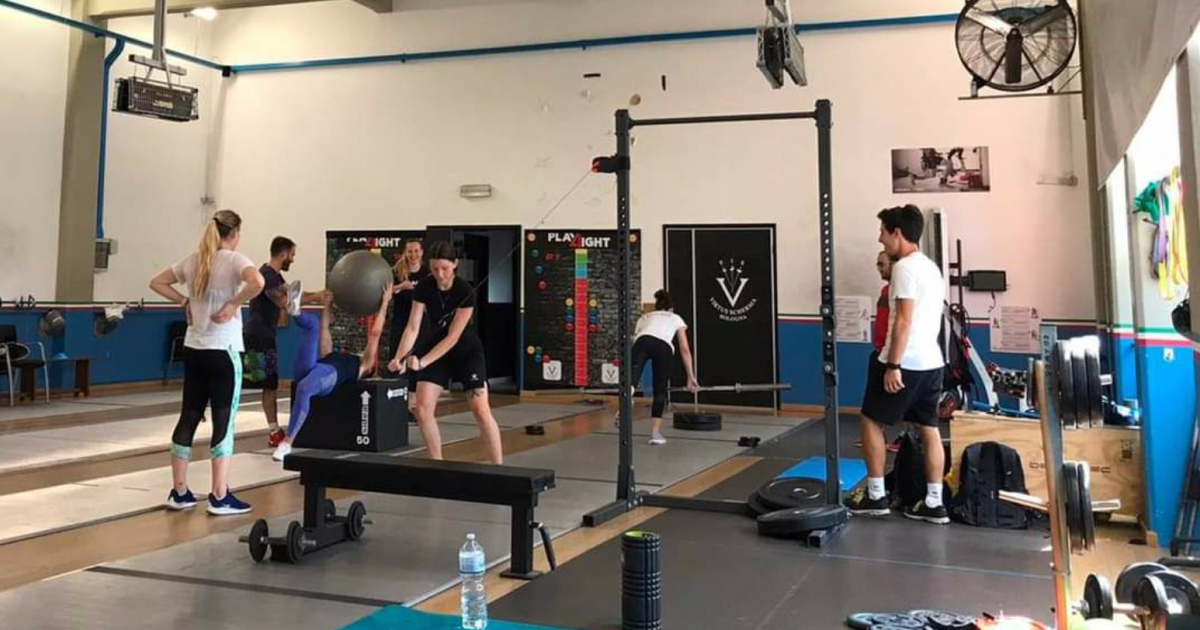
— With the war in Ukraine, did the Italian coach suggest that you not return home during the hostilities?
Actually, there were no such discussions. Basically, coach Andrea Terenzio knows the whole situation. In the beginning, when we started working, he talked to us a lot about the war. Every day, he would ask how things were at home and what was going on. But I think none of us were afraid of explosions and alarms because we were going home. Everything is dear to us there - the people, the walls, the city. Despite everything, we just wanted to go home and be there, to recharge with that energy.
I went to Italy for training two months after the real invasion started and came back for the first time in three and a half months. It's really hard when you don't see your family or friends for that long.
— How do you avoid being distracted by the war or tragic news from the front?
During the competition, I try not to read the news. I try to distract myself a little. However, I know that in the evening, I will read what happened in Ukraine during the day and return to the present reality. When I feel that it is getting very difficult emotionally, I try to talk to myself. I can ask the girls for support — they can help me.
If I feel that I'm getting weaker physically, I start to do more active warm-ups to engage my body.
— When do you evaluate a fight's success immediately after it or during training?
The coach quickly analyzes gross mistakes during the qualifying tournament for the competition. After the competition, all the fights are fully analyzed. Competitions are a test. The coach evaluates what is already working well and what still needs to be worked on.
Watching the recordings of the fights, we discuss how to tactically defeat our opponents. We fence with girls from different countries, each with their own style. Our task here is to find the key that will help us deliver accurate blows to our opponents.
— You are a left-handed fencer. Does that give you an advantage in a fight?
Actually, a lot of people fence with their left hand. So it's the norm now. Of course, when we analyze the opponent's technique and look for the key to it, we understand where it is better to strike. But the left hand does not give you an advantage in training. In the past, 20-30 years ago, it was a rarity. It was thought that it would be inconvenient for a left-handed fencer to fight. But now everyone is used to it.
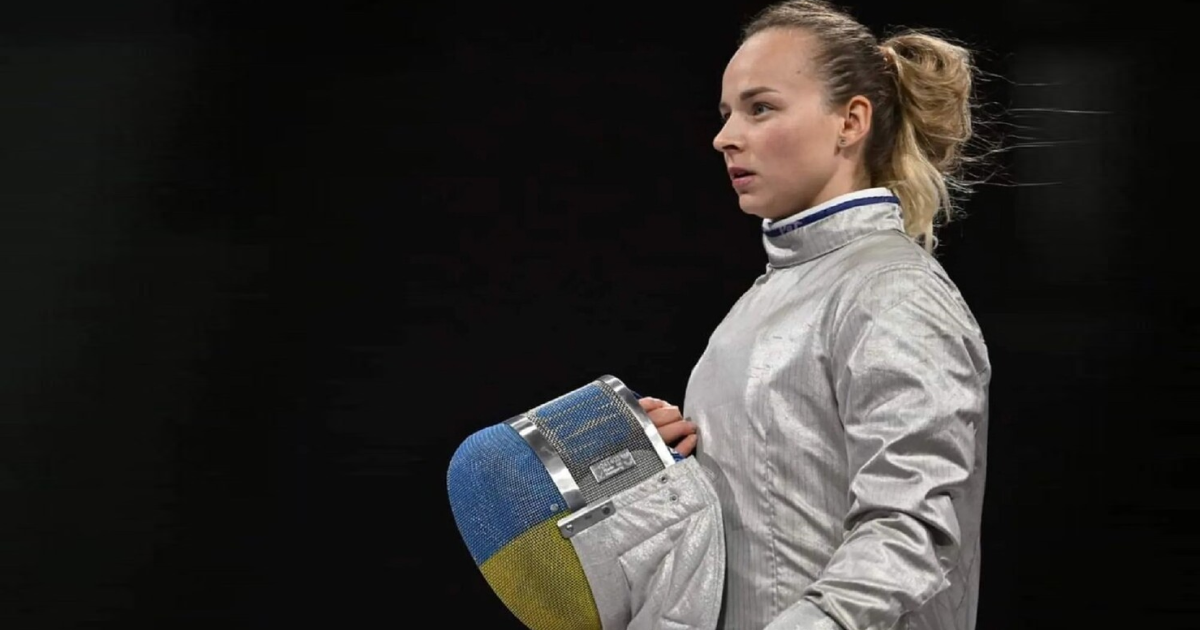
— Is there any room for competition in your team or are you very friendly?
Our coach has never created competition in our team. We always try to support each other. We know that if one of us gets stronger, the others have something to strive for.
There are times when we discuss each other's mistakes during training after a fight. We know that in international competitions, we will be fencing with competitors from other countries. It is very rare that we are pitted against each other.
— What are you planning to do next with your career? Do you have any specific goals?
We put a lot of effort into preparing for the Paris Olympics. Now, we just want to enjoy our holidays and our home. We want to enjoy the fact that we made it. I will know what I want to do when I start training again.
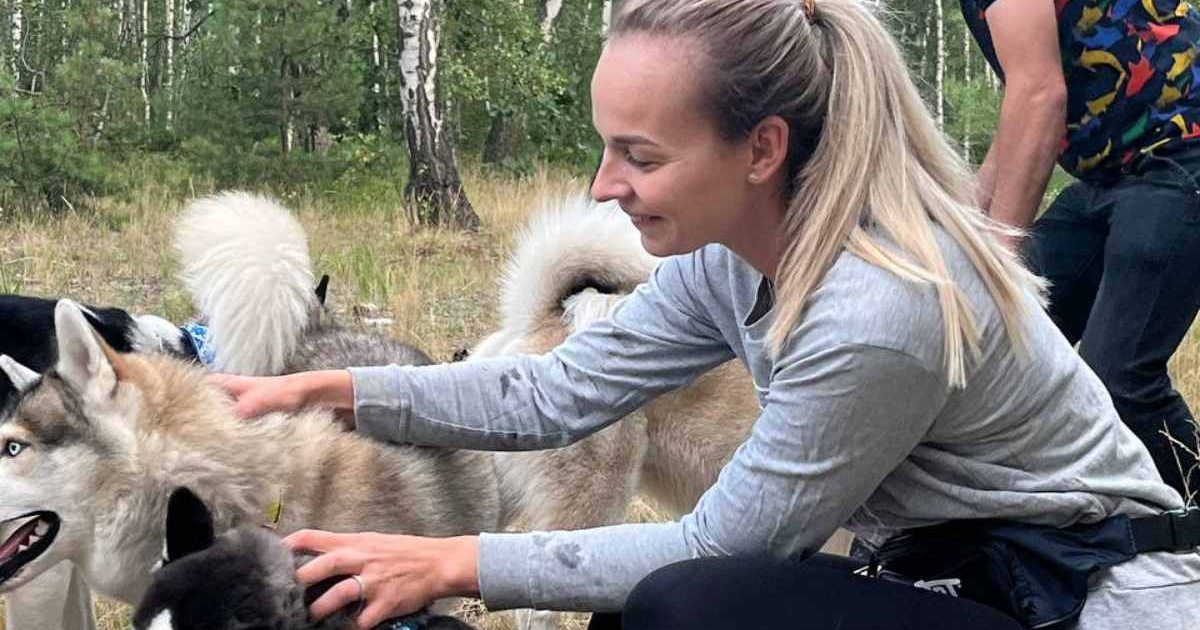
At the end of the season, we have a month off. That is when we usually return to Ukraine, our home. No matter how hard we train physically, we must be mentally and emotionally prepared.
— You used to be a coach. Have you thought about sharing your experience again?
Yes, I had coaching experience in 2020-2021. My family needed money at that time, and I was offered a part-time job as a children's coach at a sports club. I worked there for about a year and a half. At the same time, I was still training, studying at the university and going to competitions. It was a fascinating experience. Maybe in the future, I will work with children again. After big sports, everything is possible.
— What do you think about the Russians being allowed to compete, albeit under a neutral flag?
I think they should not take part in competitions while there is a war going on, while such horrors are happening in our country, while people and children are dying. There is no justice in it. It is really very difficult for our athletes to train.
We were training in Italy and it was easier on the one hand because we were safe. But being away from home for so long is emotionally very difficult.
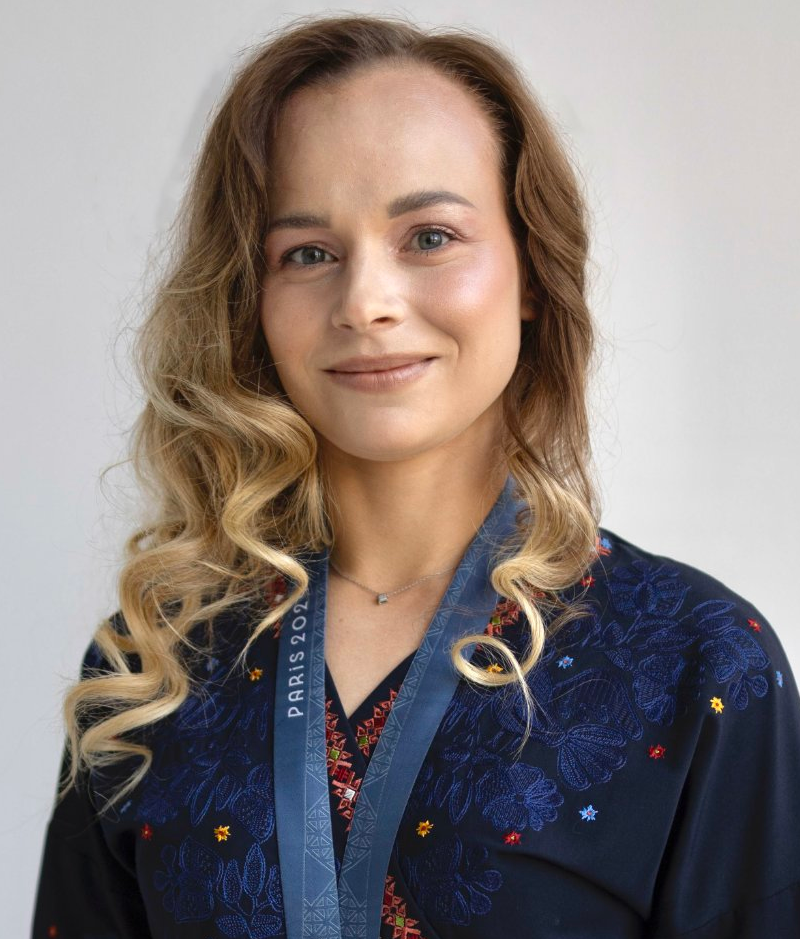
The Russians are doing well. Their planes fly, while our athletes need 2-3 days to get from Ukraine to compete. This is very tiring and exhausting for the athletes who have to perform and do their best.
— What is the behaviour of athletes from Russia who come to international sports competitions during the full-scale Russian-Ukrainian war?
In the first year of the all-out war, Russians did not take part in sports competitions because they were not allowed to compete in fencing. Later, when they were allowed, it was only a few people and I didn't see them at all. Only sometimes, when I went to watch a fight, could I see Russians there. Then they would lose and leave.
If there is one or two athletes who don't have support, they definitely don't want to be in the limelight. However, it seems to me that this was the case in Milan (referring to Anna Smirnova at the World Fencing Championships, when the Ukrainian Olha Kharlan refused to shake the Russian's hand after the fight — ed). Then Olha fenced with the Russian, who later stayed for another hour (demanding Kharlan's disqualification — ed). She must have really wanted to be in the spotlight.
— Do you have a team strategy for dealing with the Russians when they are your competitors in the competition?
In the beginning, there was an order from the Ministry of Youth and Sports that we should not take part in competitions where Russians are present. We had no other choice. The case of Olha Kharlan changed the rules. It was possible not to shake hands, and there was no disqualification. Then I decided for myself that I had to fence because these people are doing so many bad things to our country, to our nation, to our people. Why should these people stand in the way of my goal to represent myself and Ukraine with dignity?
— What do you think about the effect of the ministry's ban on participation in competitions where Russians are present?
We tried to show through the boycott that we did not want to see Russians at the Olympics. The IOC, of course, did not react very well. For them, if you don't want to take part in the competition, so be it. Then our country changed its tactics. It showed that it was ready to fight and that we were not going to give up. But we will not shake hands with the Russians and show our respect for them as athletes.
— Did you feel the support of Ukrainian athletes and Ukraine when you were training and competing abroad?
When we fenced in the final, the whole venue supported us. There were a lot of foreigners cheering for us. When Olha Kharlan fought for third place, everyone was rooting for her and cheering when she won the bronze medal. It was very emotional.
